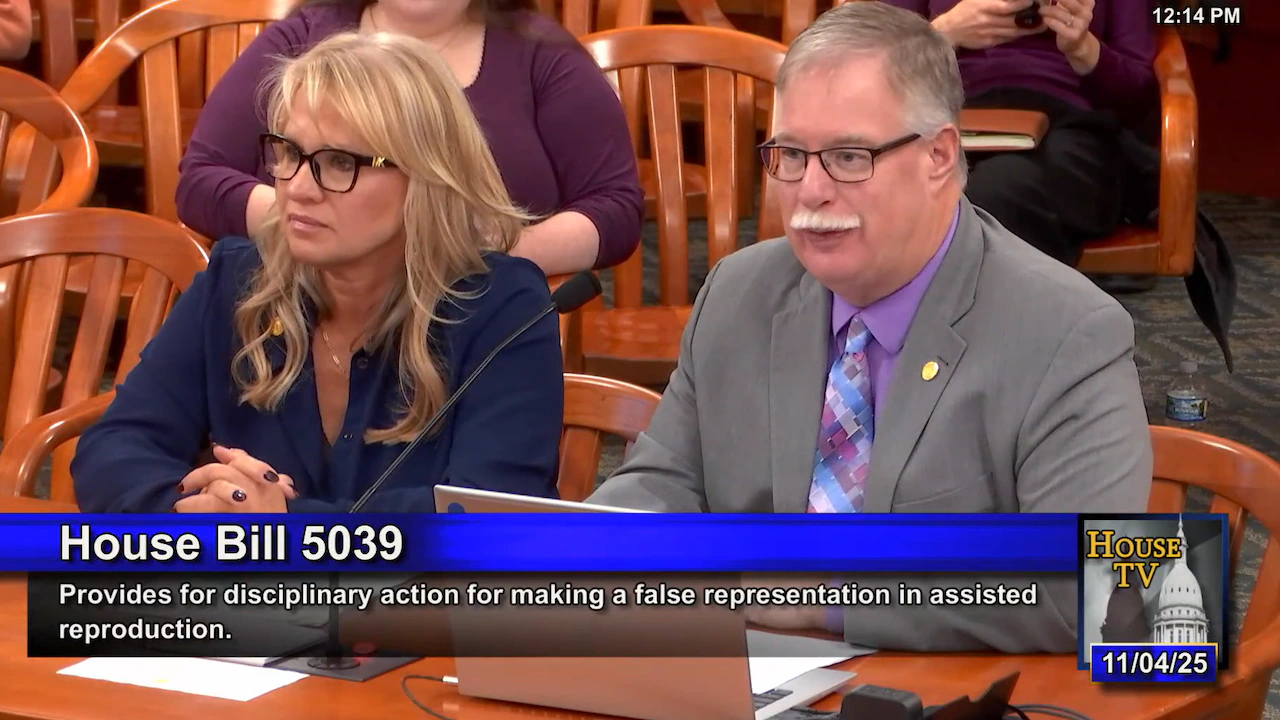Copyright M Live Michigan

Before Lynn Spencer was conceived, her parents picked a sperm donor who they believed was a medical school student. She later learned, through a DNA test, that was a lie. In reality, he had a 9th grade education. “That’s not to say he didn’t have intellectual ability, but the fact that the doctor lied about that, it’s problematic,” Spencer told lawmakers Tuesday during a House committee hearing. Education is one thing, but what if a donor or medical facility lied about something more consequential like medical history? Rep. John Roth, R-Interlochen, said Michigan doesn’t have guardrails to prevent fertility fraud, including dishonest donors or doctors who use different sperm from what’s agreed upon with the prospective parents. Related: Her parents selected a sperm donor. Decades later, a Michigan woman learned her father was mom’s doctor. In September, lawmakers introduced a five-bill package, which they say would ensure honesty in assisted reproduction and establish penalties for donors and medical professionals who knowingly mislead the prospective parents. Donors who provide false representation for reproductive procedures like IVF would be a class E felony punishable by up to five years in prison. For the medical professionals, it would be a class E felony with a maximum penalty of 15 years in prison. Roth said violations would have to be intentional to be prosecuted. He referenced a Detroit-area doctor who used his own sperm for decades as part of fertility treatments for couples having difficulties conceiving. “A member of our Northern Michigan community grew up believing she was entirely Scottish, only to discover, through a 23andMe genetic test, that she is actually half Jewish,” Roth said. “She had more in common genetically with the doctor’s son than her own sister. As genetic testing becomes more accessible, more individuals will uncover similar truths about their identities. It is imperative that medical professionals understand that these actions are not victimless crimes. Everyone deserves to know their genetic heritage.” Similar bills were proposed in 2022 and have been re-introduced each session. They’ve typically failed to reach a vote despite little to no opposition, according to Roth. Opposing the latest bills was the Michigan Fertility Alliance, which advocates for people who need assisted reproduction and surrogacy to start or grow their families. Stephanie Jones, the group’s founder and president, said the intent behind the bills is appreciated but its language is “dangerously vague” and its practical impact would be “catastrophic.” She said the proposals exploit the lack of understanding around the nuances of fertility policy. “Doctors using their own sperm during fertility treatment is a relic of the past,” she said. “Fertility medicine and donor conception today operate under much, much different rigorous ethical, professional and legal standards, and informed consent, safeguards and strict chain of custody procedures. This legislation however is written as if none of that exists.” As written, Jones said the bills would hold good physicians and donors criminally liable for simple mistakes or omissions involving things like extended family medical history or personal social history. “Research shows that even under the best conditions, 10% to 30% accidentally report (only) parts of their medical history,” she said. “That’s human error, not fraud.” Adding these penalties could cause providers to cease services, which would hurt people seeking fertility care. Jones proposed alternate options for helping prospective parents, like requiring insurance companies to cover fertility care. There are at least 14 states that have adopted fertility fraud legislation in recent years. Tuesday’s Committee on Families and Veterans hearing concluded without a vote on HB 5035-5039. No date was scheduled for future discussion or a vote on the package.



